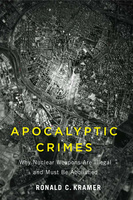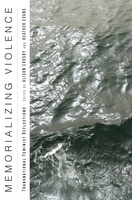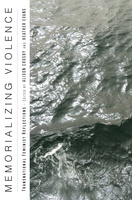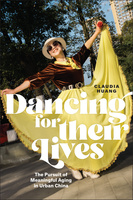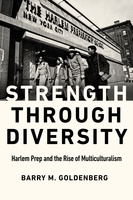At Home with the Holocaust
Postmemory, Domestic Space, and Second-Generation Holocaust Narratives
Based on analyses of literature and oral histories of children of survivors, At Home with the Holocaust reveals how the material conditions of survivor-family homes, along with household practices and belongings, rendered these homes as archives of trauma that in turn traumatized the children of Holocaust survivors.
Apocalyptic Crimes
Why Nuclear Weapons Are Illegal and Must Be Abolished
Ronald C. Kramer applies theories from criminology to argue that possession of nuclear weapons is a criminal act and shows how a nuclear apocalypse might be averted, offering a pathway to the abolition of these devastating weapons.
Caribbean Inhospitality
The Poetics of Strangers at Home
Caribbean Inhospitality juxtaposes the Caribbean’s reputation for being hospitable to foreigners with the alienation of the Caribbean citizen-subject from nations they call home. Reading literary, cinematic, and digital texts, Natalie Lauren Belisle demonstrates that this inhospitality is institutionalized through the aesthetic, reproducing itself in the laws that condition belonging and membership in the Caribbean nation-state.
Memorializing Violence
Transnational Feminist Reflections
This volume brings together feminist reflections on the transnational lives of memorializations to colonial, imperial, militarized, and state violence. It asks what’s at stake in memorializing amidst and against ongoing harm and injustice produced by white supremacist global capitalist empire.
Memorializing Violence
Transnational Feminist Reflections
This volume brings together feminist reflections on the transnational lives of memorializations to colonial, imperial, militarized, and state violence. It asks what’s at stake in memorializing amidst and against ongoing harm and injustice produced by white supremacist global capitalist empire.
Labs of Our Own
Feminist Tinkerings with Science
Labs of Our Own demonstrates the perils and possibilities that emerge from experiments in democratizing science. The book ultimately intervenes in stale debates for and against science by arguing against uncritical excitement for democratic science and instead for critical science literacy and feminist tinkering as third ways forward.
Dancing for Their Lives
The Pursuit of Meaningful Aging in Urban China
Dancing for Their Lives delves into the world of retired Chinese “dancing grannies” who seek fulfillment amid broad social transformation. Based on ethnographic research, it challenges conventional narratives of aging by portraying old age as a site of innovation. It examines how retirees navigate changing norms and offers insights on resilience and meaning in later life that resonate globally.
The Dressing Room
Backstage Lives and American Film
A recurrent and popular setting in American cinema, the dressing room has captured the imagination of audiences for over a century. In the only book-length study of the space, Desirée J. Garcia explores how dressing rooms are dynamic realms in which a diverse cast of performers are made and exposed.
Supervillains
The Significance of Evil in Superhero Comics
This book provides a savvy investigation of the supervillains that appear in superhero comics. Exploring villainous archetypes and Otherness in relation to the notion of evil, the book investigates how supervillains uphold and solidify but also trouble hegemonic ideals expressed by the heroism of superheroes.
Strength through Diversity
Harlem Prep and the Rise of Multiculturalism
In Strength Through Diversity, Barry M. Goldenberg traces the inspiring, uncharted history of Harlem Prep, a unique multicultural institution that became an educational phenomenon in the iconic Black neighborhood of Harlem and nationwide. From 1967 to 1974, Harlem Prep sent to college many hundreds of students who had previously been labeled as “dropouts,” demonstrating how a multicultural educational program centered on diversity can provide a blueprint for schools today.


